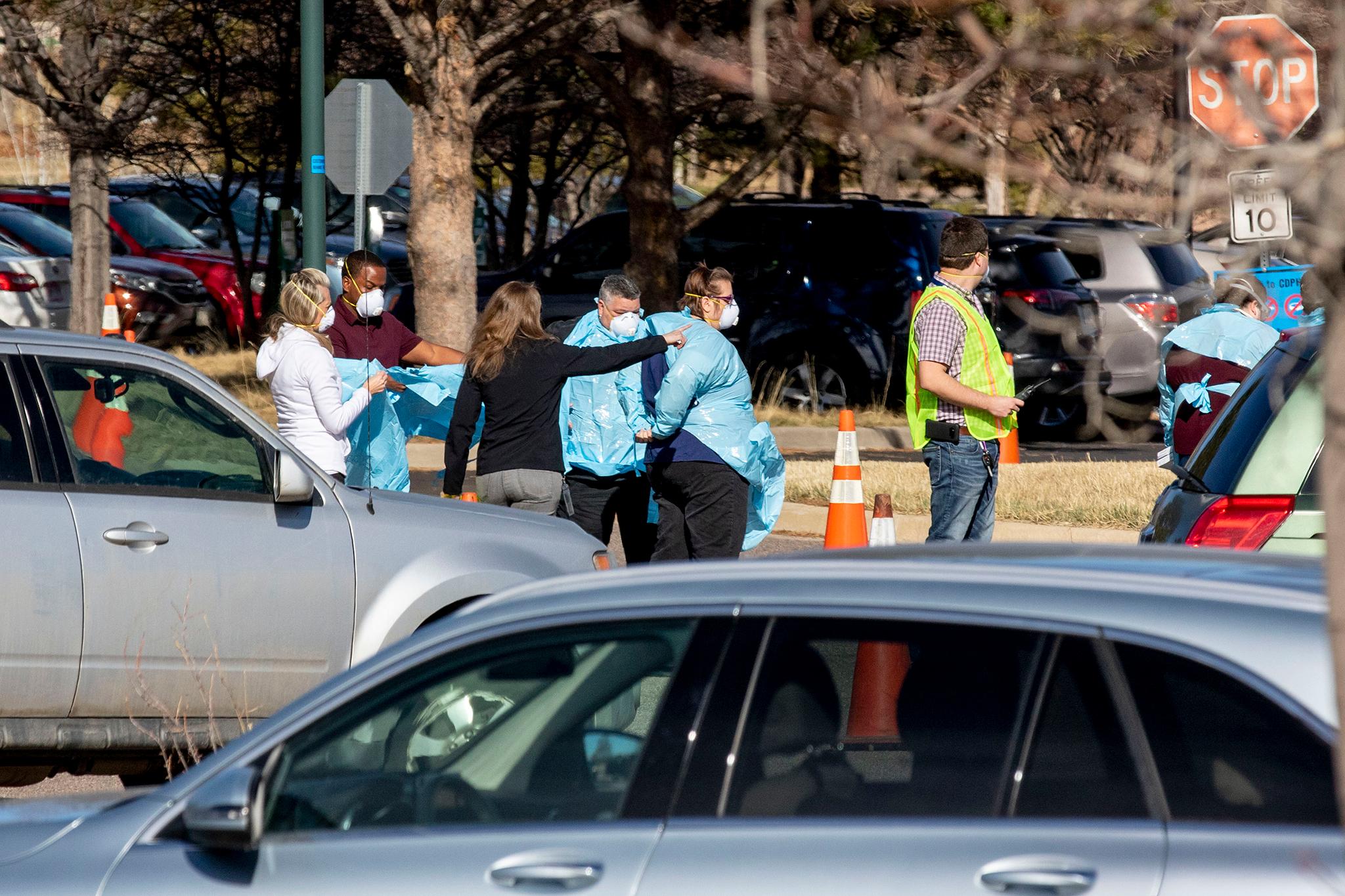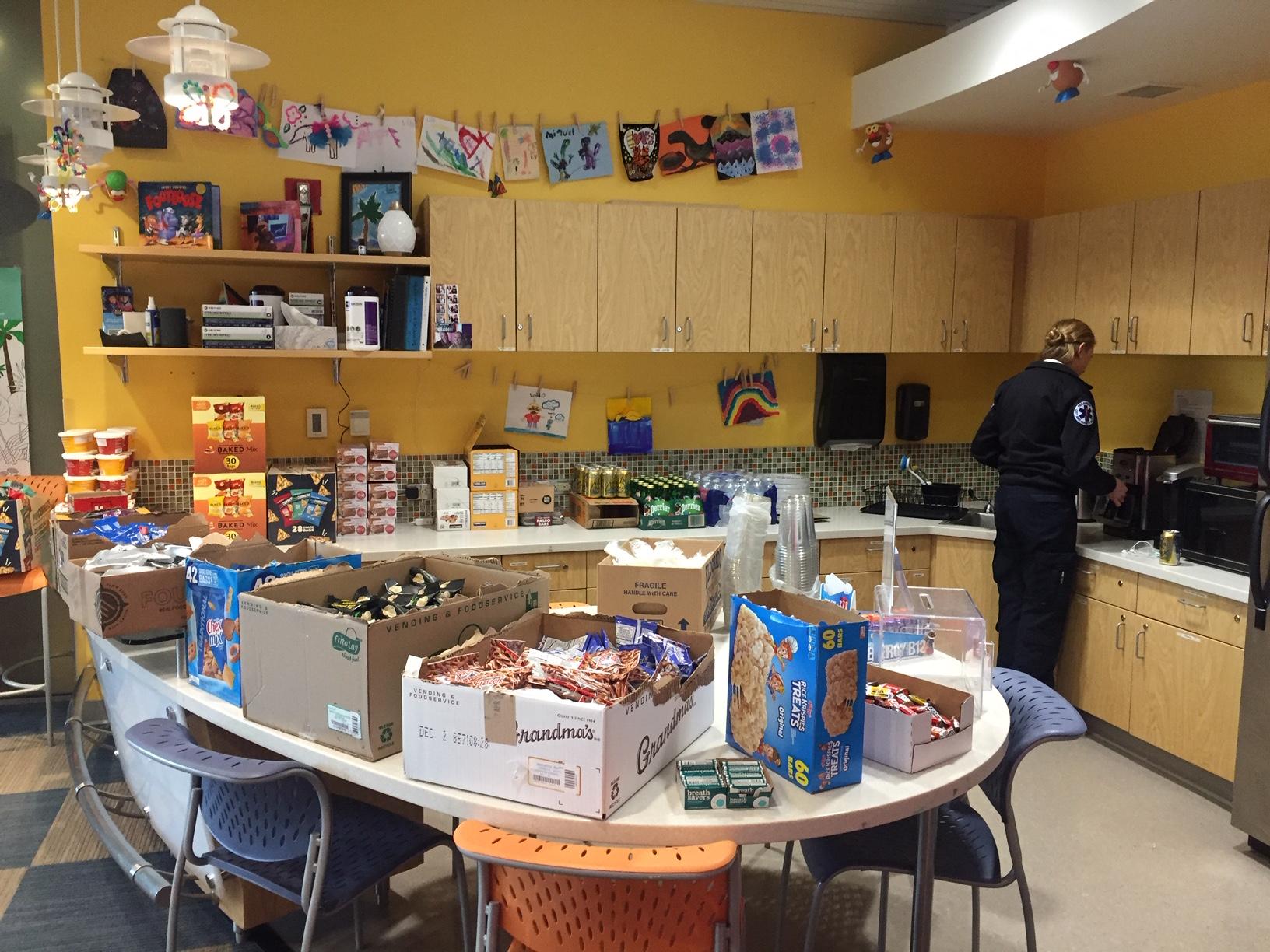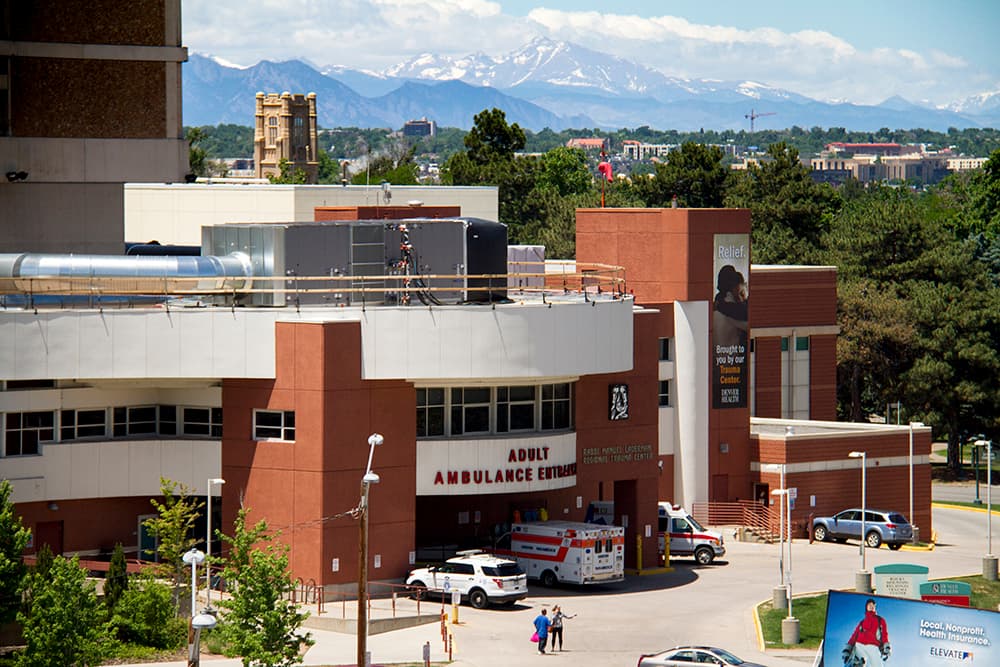When a new program for Denver Health staff launched in January, it was intended to provide support for doctors and nurses who had undergone stressful events like losing a patient.
Denver Health music psychotherapist Maria Schimpf said Resilience in Stressful Events, or RISE, was developed by Johns Hopkins Medicine and Maryland Patient Safety Center and included in-person group support sessions and one-on-one meetings. Schimpf helped bring the program to Denver Health and now runs it.
She said RISE is now helping doctors, nurses, volunteers and other staff cope primarily with one stressful event: the coronavirus outbreak.
“We had no idea what was waiting for us,” she said.
Denver Health has shifted its RISE group meetings for groups and individuals to pre-scheduled virtual meetings. Twenty-seven new peer responders were recently added to lead the group and individual sessions.
“So in many cases, this is no longer one department struggling with the death of patient … but is instead people who are struggling with how they’re personally and professionally impacted by COVID-19,” Schimpf said.
This week, Denver Health converted a therapeutic children’s playroom, which can’t be used at the moment since groups of people are being discouraged, into a staff support space. The playspace was donated by country musician Garth Brooks and opened on Monday.
The coronavirus outbreak is not the first time Alcoholic Anonymous members have been forced to meet remotely.
At least, that’s according to Abby — who, in the tradition of AA’s anonymity, asked us to only use her first name. She works out of the offices for the Denver Area Central Committee of Alcoholics Anonymous.

Over email, Abby quoted AA’s literature about how the organization perseveres: “Modem-to-modem or face to face, A.A.’s speak the language of the heart in all its power and simplicity.”
The Denver AA’s central office on Zuni Street is closed through April 11 due to the outbreak. But it hasn’t stopped members from meeting online and over the phone. Abby said online meetings are drawing anywhere between 6 and 150 people.
More than 200 local AA meetings have moved to “virtual” meetings on phone, email, text or video conferencing, Abby said.
“Today there is a website dedicated to listing online and telephone AA meetings,” Abby said in the email. “So all these folks who came before us have helped pave the way for what many of us are experiencing today.”
Abby said in its 85-year history, AA has been able to help people achieve sobriety and stay connected through a variety of ways, from in-person meetings to phone calls. Abby said in 1944, the group’s journal, AA Grapevine, helped connect people in the armed services living in remote communities. The organization held its first online meeting around 1986.
Marcia Donziger is the vice president of digital strategy and business development for the Cancer Support Community, a nonprofit providing free support services for cancer patients and their families. Donziger is based in Denver, where the organization has its digital hub.
Donziger said most of of CSC’s cancer support groups in Colorado have always met online or over the phone, so it hasn’t had to change much because of the coronavirus. But far more people have utilized its services lately. Donziger says the organization’s website has seen 150 percent more visitors. People can connect through discussion boards for things like health and nutrition, grief and loss, parenting with cancer and coping with side effects from treatment.
Donziger said she recently learned about a woman who posted about her husband dying in January and the trouble she was facing grieving amid the outbreak. That person ended up being contacted by another person who lost their partner the same day to cancer.
“They connected on this (online) board, which has been a really special, kind of coincidental connection, because what are the odds that you lost your spouses on the exact same day?” Donziger said.

CSC has also recently been offering Zoom meetings, making programs more accessible, especially in rural areas and for people without access to transportation.
“I think because there is a platform like Zoom, which is HIPPA-compliant, that we’re going to be able to offer almost every service online,” Donziger said. “I think it’s a positive for us because sometimes when you have cancer and you need to access that support group, you feel too sick … but it’s so easy to access.”













